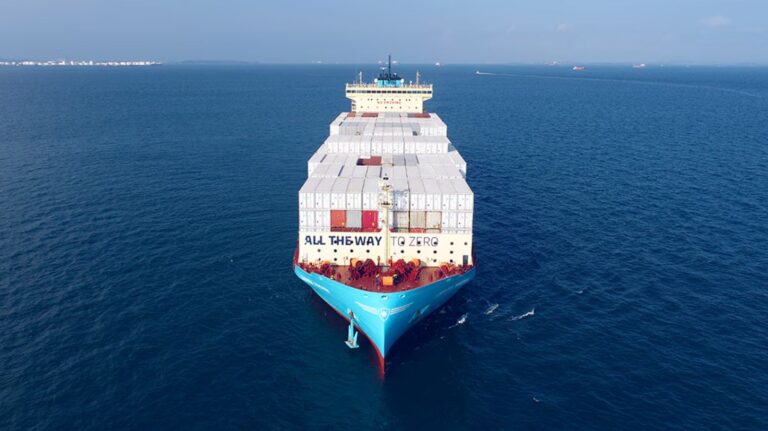Food company Danone has announced that it has partnered with global logistics company Maersk to ‘reduce its logistics greenhouse gas (GHG) emissions by using Maersk ECO Delivery Ocean, a product based on reduced-GHG-emission fuels like biodiesel or bio-methanol which are produced solely from waste feedstocks.
According to Maersk, the use of these fuels can reduce GHG emissions by 40% when compared to conventional fossil fuels.
Maersk was amongst the winners at the 2024 Supply Chain Excellence Awards; click here to see the full list of winners!
Jean-Yves Krummenacher, global chief procurement officer at Danone, commented: “We are happy to partner with Maersk through Danone’s Partner for Growth programme.
“The ECO Delivery Ocean product and its reduced greenhouse gas emissions align well with our decarbonisation strategy to focus primarily on alternative fuels and multimodal transportation.
“Maersk is an important partner and using their product to reduce CO2 emissions on sea freight marks yet another step in our decarbonisation journey.”
Danone is targeting net zero emissions by 2050, while Maersk has set a net zero target of 2040.
“The swift reduction of greenhouse gas emissions is at the core of both our companies,” said Emilio de la Cruz, Maersk’s area managing director for South West Europe.
He continued: “Well-known companies like Danone can act as a beacon in their industries by using effective levers to decarbonise their supply chains. We are proud to be Danone’s trusted partner in this important task”.
Following the announcement of this partnership, Maersk shared that it has entered into a long-term bio-methanol offtake agreement with LONGi Green Energy Technology.
With the addition of the LONGi volumes, Maersk has said that it is ‘making progress in securing enough methanol for its owned dual-fuel methanol fleet, of which seven vessels are already in operation.
READ MORE: Maersk unveils new container ship running on green methanol
Maersk’s combined methanol offtake agreements now meet more than 50% of the dual-fuel methanol fleet demand in 2027.
Emma Mazhari, head of energy markets at Maersk, said: “While we believe that the future of global logistics will see several pathways to net zero, this agreement underscores the continued momentum for methanol projects that are pursued by ambitious developers across markets.”







